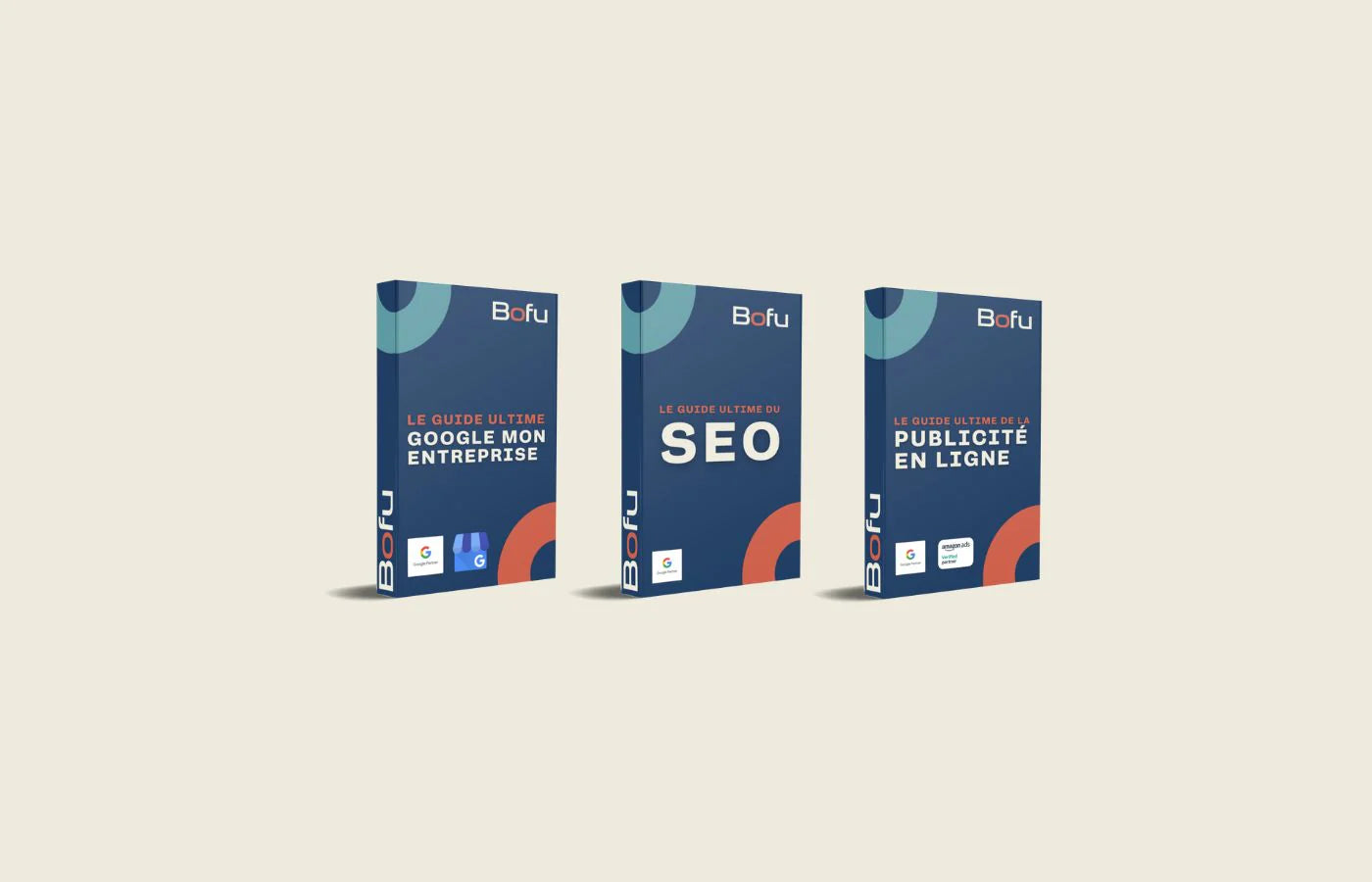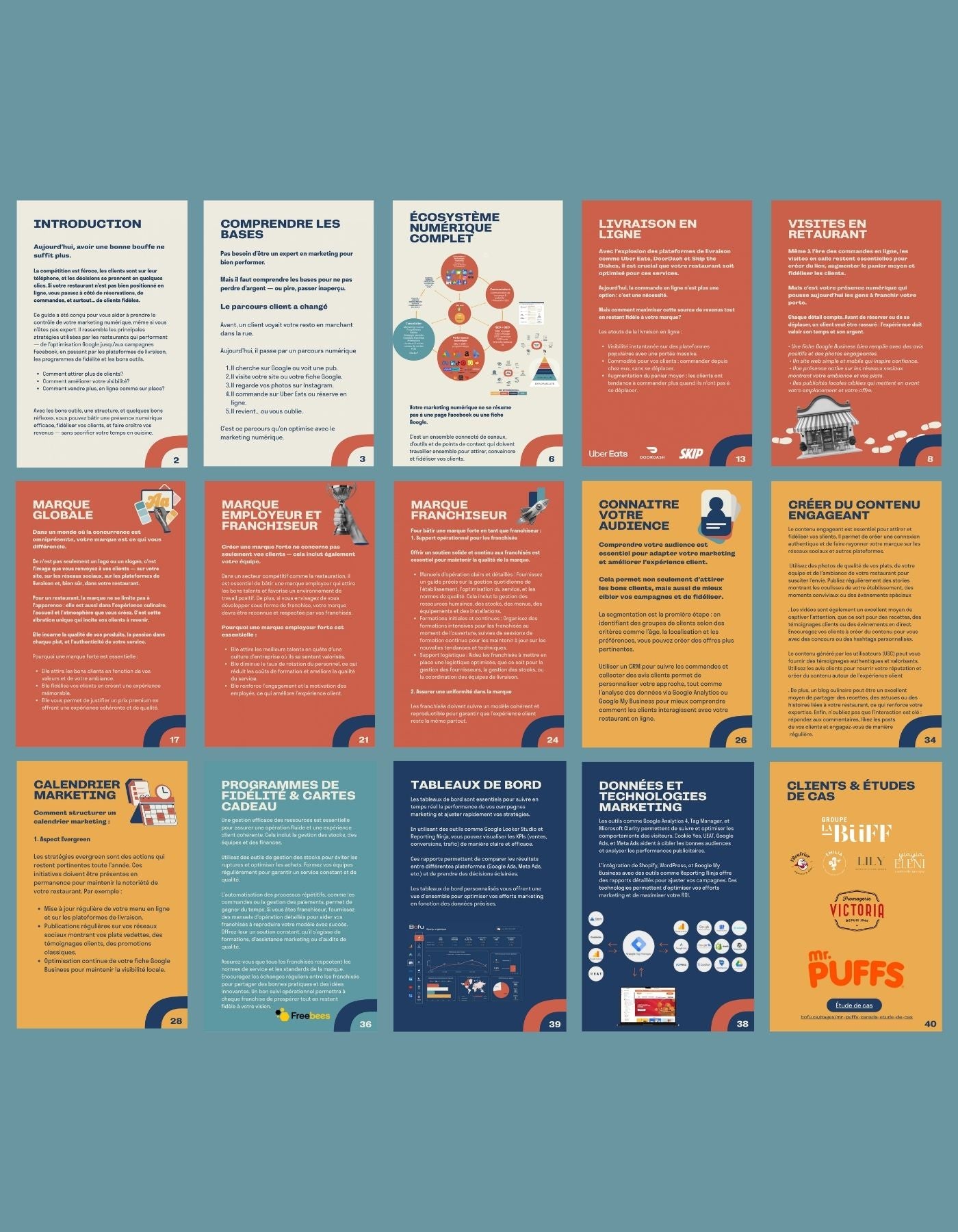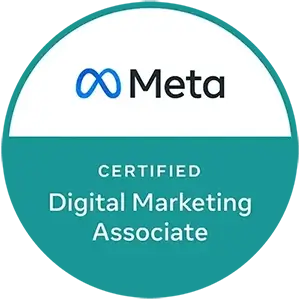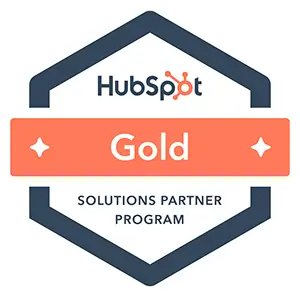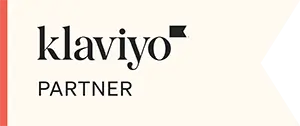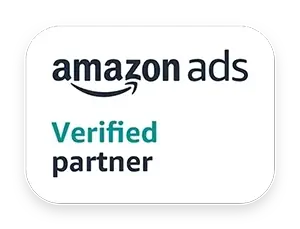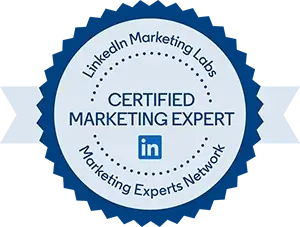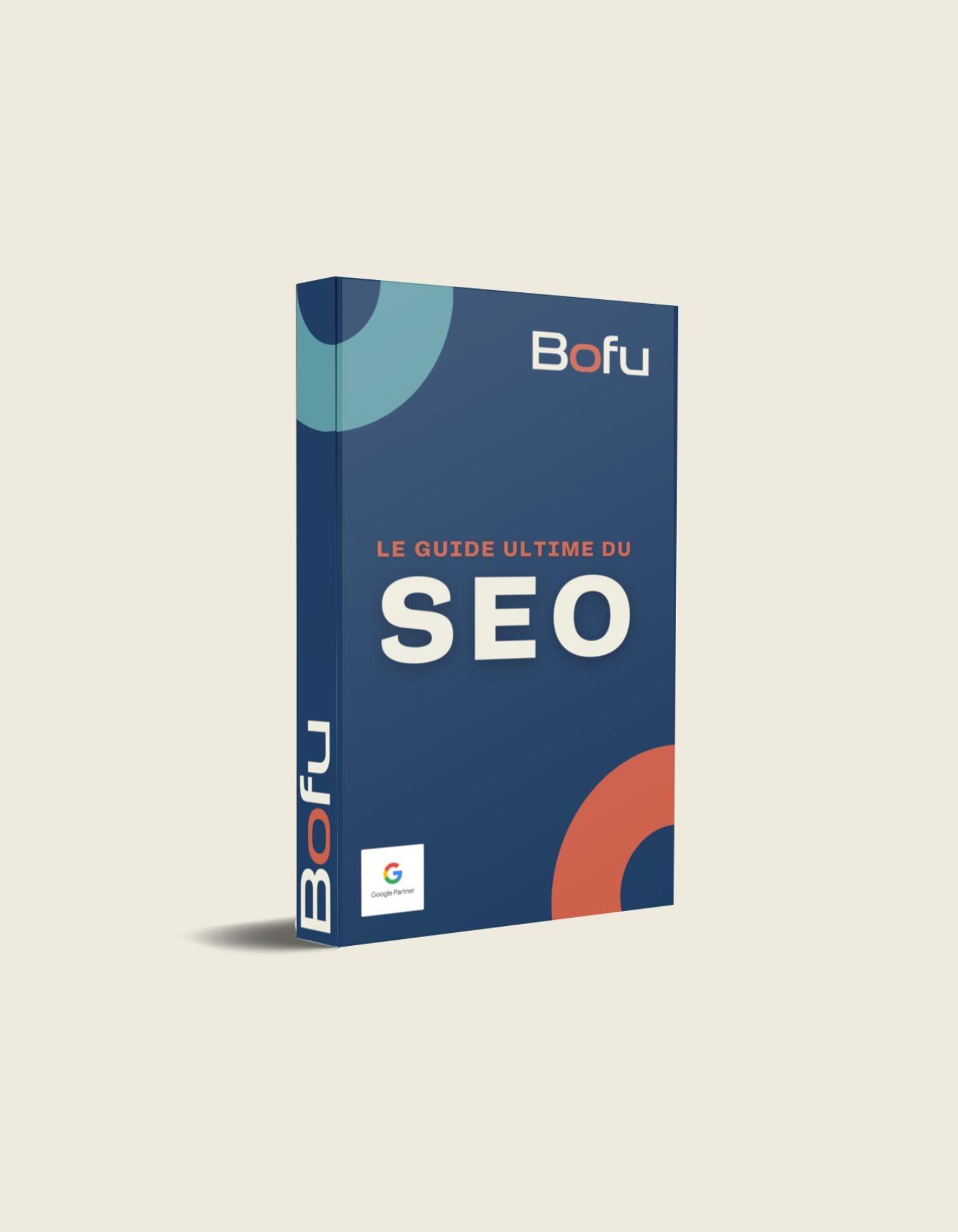


The Ultimate Guide to SEO 2026 (French)
The guide will be emailed to you within a minute of placing your order!
Choose options
The guide will be emailed to you within a minute of placing your order!
The guide will be emailed to you within a minute of placing your order!
"The Ultimate SEO Guide 2026" is an essential resource for business leaders and decision-makers who want to understand and harness the potential of Search Engine Optimization (SEO) to maximize their company's visibility on search engines. Written by industry experts in SEO, this comprehensive and up-to-date guide provides you with the most effective strategies and techniques to optimize your online presence and attract targeted traffic to your website.
This book offers an in-depth overview of the key aspects of SEO, including on-page optimization, off-page optimization, technical and local SEO, as well as tracking and analyzing your SEO efforts. It demystifies how search engines work and details the factors that influence your site's ranking. Furthermore, it explains the importance of keywords and how to create content that caters to the needs of your target audience.
Whether you want to grasp the significance of backlinks, learn how to make your site faster and mobile-friendly, or discover how local SEO can boost your business, this guide covers it all. Additionally, it highlights the importance of monitoring and analyzing your SEO performance, providing tips on using analytical tools to gather valuable insights.
"The Ultimate SEO Guide 2026" is more than just a book - it's a valuable tool that empowers you to stay competitive in today's digital world. By reading it, you gain the necessary knowledge to navigate the complexities of SEO successfully and make your business a leader in your industry. Invest in your success by getting this guide today.
everything you need to know about SEO in 60 pages
Contents
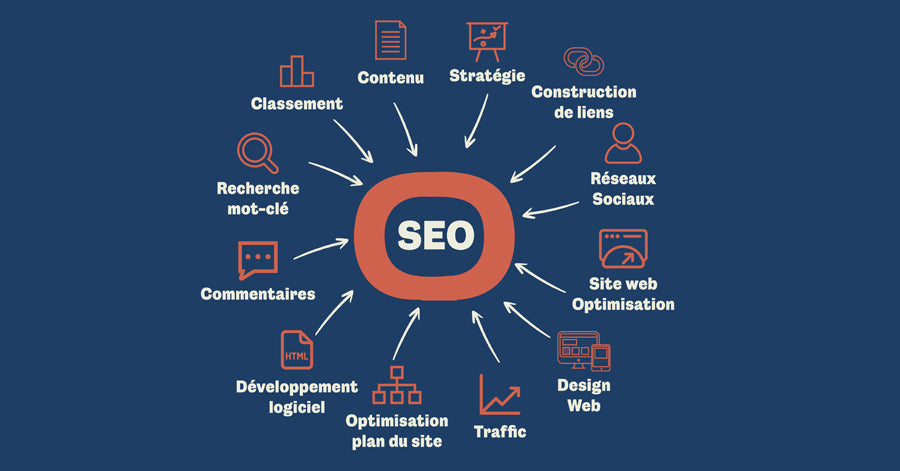
SEO
The ultimate tool for marketing experts!
The Ultimate Guide to SEO 2023" is more than just a book - it's a valuable tool that allows you to stay competitive in today's digital world. By reading it, you gain the knowledge needed to navigate successfully in the complex world of SEO and make your business a leader in your industry. Invest in your success by getting this guide today.
frequently asked Questions
Frequently Asked Questions About Search Engine Optimization
General SEO Questions
SEO (Search Engine Optimization) is a series of strategies and techniques designed to increase the visibility of a website or web page in a search engine's organic, or non-paid, search results. The goal is to improve site visibility and ranking to attract more traffic and ultimately conversions.
Both SEO and PPC have their advantages. SEO provides long-term organic traffic while PPC gives immediate visibility. To achieve the best results, a combination of both strategies may be beneficial.
SEO works by optimizing the content and structure of a website to make it more attractive to search engines. This involves optimizing keywords, creating quality content, improving page load times, ensuring your site is mobile-friendly, and acquiring high-quality inbound links.
There are several keyword research tools available, like Google Keyword Planner and SEMRush, that provide information on the keywords people use to find businesses like yours. You can also analyze the keywords that your competitors are targeting.
The cost of SEO can vary greatly depending on the complexity of your site, the level of competition in your industry, and the scale of your strategy. It includes time spent on keyword research, content creation, technical optimization, and obtaining inbound links.
The ranking of a website depends on various factors such as keyword relevance, content quality, website speed, mobile compatibility, backlink profile and more. If you're not ranking, it may be due to problems in one of these areas.
Organic traffic can decrease for several reasons, including Google algorithm changes, technical SEO issues, decreased keyword rankings, or Google penalties.
A Google penalty is a punitive action taken by Google against websites that violate its Webmaster Guidelines. This can lead to lower search rankings or even complete delisting of your website.
The time to rank on Google varies depending on the competitiveness of your keywords, the quality of your SEO strategy, and the authority of your website. It usually takes several months/years to see significant improvements.
Important Google ranking factors include quality content, relevant keywords, mobile compatibility, secure website (HTTPS), user experience, and high quality backlinks.
Although social media is not a direct ranking factor, it can indirectly influence your rankings. Greater social media engagement can lead to greater visibility, more backlinks, and increased website traffic, which can improve SEO.
An in-house marketing team can work on optimizing keywords, creating high-quality content, improving site speed, reducing technical errors, implementing title and meta tags appropriate descriptions, and obtaining high quality inbound links.
Important KPIs for SEO include keyword ranking, organic traffic, bounce rate, time on site, conversion rate, and page views per visit.
SEO can help your e-commerce site rank higher in search results for relevant keywords, which can lead to more traffic and ultimately more sales. It's also essential to optimize your site for mobile search, since a large portion of online shopping is done on mobile devices.
SEO can improve top-of-funnel visibility by helping you rank for keywords related to awareness and education. For example, if you're selling coffee machines, you can create content around "how to choose a coffee machine" to appeal to people who are early in their buying journey.
SEO can help with lead generation by improving your online visibility. By ranking for relevant keywords, you can drive more qualified traffic to your site, which can translate to more leads.
It is not possible to guarantee results with SEO due to the unpredictable nature of search engines. However, a good SEO strategy can dramatically increase your chances of ranking well.
To rank faster, you can create high-quality, relevant content for your target audience, optimize your site for mobile search, improve your site speed, and get high-quality backlinks.
SEO can be called search engine optimization, natural referencing or organic referencing.
Technical questions about SEO
On-Page SEO focuses on optimizing a page's content and HTML source code, while technical SEO refers to optimizing your website for the crawling and indexing phase. improved website speed, guaranteed mobile compatibility, and more.
Aim for a page speed score of 90 or more on desktop and mobile. It's considered fast by Google and provides a good user experience.
You can find technical SEO errors using tools like Google Search Console, Google's PageSpeed Insights, and SEO audit tools like SEMRush or Ahrefs.
When rebranding, you can use 301 redirects to redirect users and search engines from your old pages to your new pages. This helps retain the link juice from your old site and minimizes the impact on rankings.
URL structure is important because it helps search engines understand what a web page is about. A well-structured URL should be short, descriptive, and include relevant keywords.
Content Marketing Questions
There is no set length for SEO optimized content. However, in-depth and valuable content generally performs better. The key is to ensure that the content is complete, relevant and provides value to your audience.
Create SEO-optimized content by performing keyword research, integrating those keywords naturally into your content, using appropriate title tags, meta descriptions and headings, and providing valuable insights and thorough.
Yes, duplicate content can hurt your website rankings. Google aims to provide diverse and relevant content to its users, so it tends to avoid showing multiple versions of the same content.
Yes, it is quite possible to position yourself for a specific keyword. This requires understanding what your target audience is looking for and creating high-quality content that meets those needs, while using the keyword strategically in your content.
It is not ethical or recommended to directly target your competitor's name with SEO. However, you can try to rank for the same keywords as your competition by providing higher quality content and a better user experience.
An SEO analysis includes examining your website for technical errors, analyzing your and your competitors' keywords, evaluating the quality of your content, analyzing your backlinks, and reviewing your performance metrics.
The structure of an SEO plan and strategy should include keyword research, competitor analysis, technical optimization, content strategy, link building strategy, and a plan to track and adjust. your strategy based on the results.
Link Building Questions
Link building is the process of acquiring hyperlinks from other websites to yours. These backlinks are a key ranking factor for most search engines as they view them as votes of confidence in your content.
You can get links from other sites to yours by creating valuable, high-quality content that others want to share, guest blogging, and building relationships with influencers and other businesses. relevant.
Although it is technically possible to buy links, this practice is strongly discouraged by Google. Buying links can result in penalties from search engines and hurt your rankings.
You can analyze your competitor's link profile using SEO tools like SEMrush, Ahrefs, or Moz. These tools can show you which websites are linking to your competitor, which can help you identify link building opportunities for your own site.
